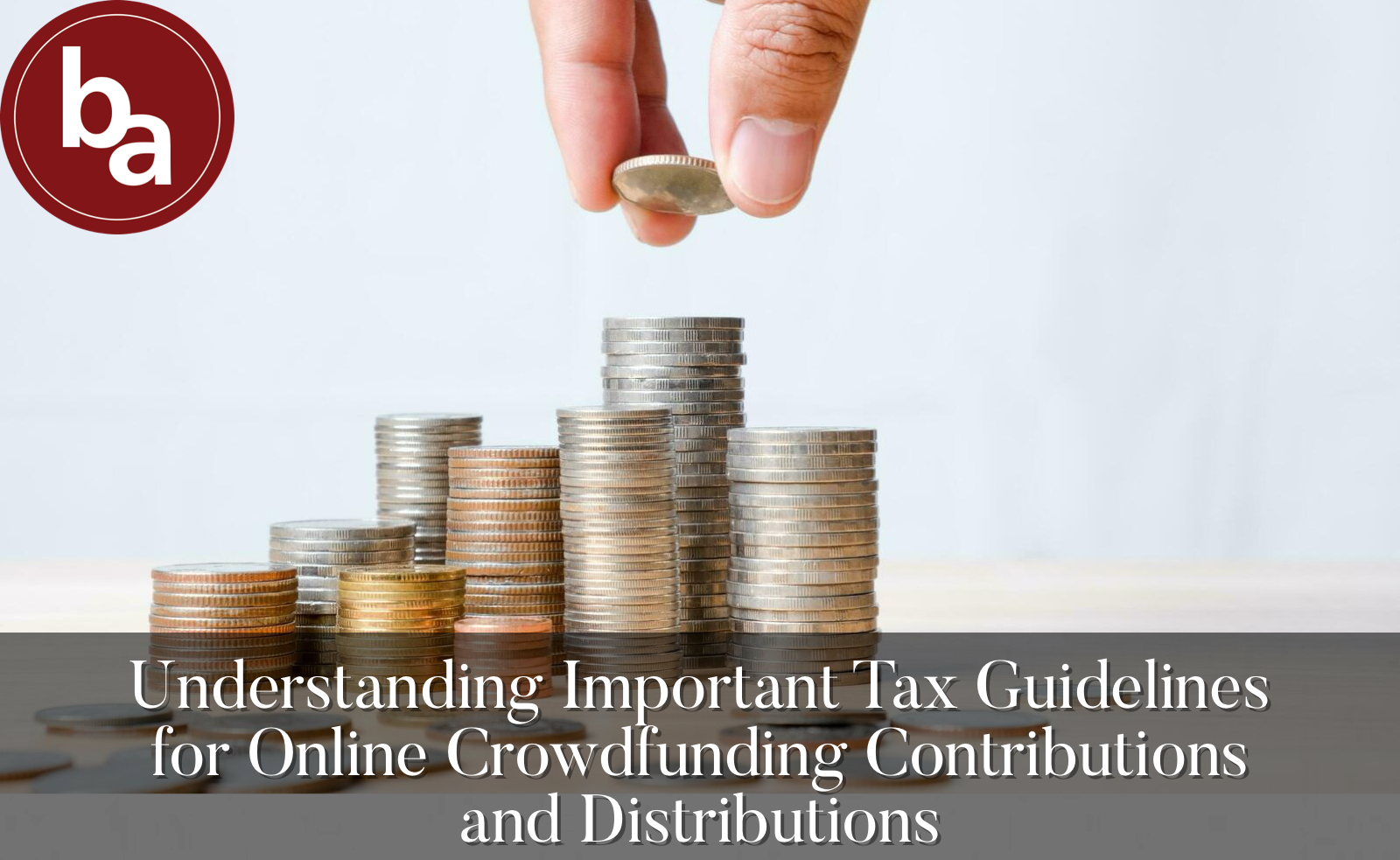Understanding Important Tax Guidelines for Online Crowdfunding Contributions and Distributions
Understanding Important Tax Guidelines for Online Crowdfunding Contributions and Distributions
Crowdfunding is among the most recent ways people and companies can get funds and has provided easy solutions for raising funds for different purposes. However, the process appears simple, yet it is not, especially when one considers the tax consequences of the exercise.
If you are a campaigner preparing a crowdfunding campaign or a recipient of distributions, it is only wise to know how the IRS views these funds. Now let us look at some of the most important tax rules regarding contributions and distributions from crowdfunding platforms.
What Is Crowdfunding and How Is It Taxed?
Crowdfunding is a financing technique whereby individuals contribute a small amount of money towards a common goal, often via the Internet. These contributions may be made for personal issues, business purposes, or for the support of charity activities. In some cases, the funds received and the purpose for which they are spent may be taxable under the federal Income Tax Act.
In taxation, the IRS assumes all income is taxable unless it has been exempted through the operation of the law. What this means is that, in certain circumstances, amounts received through crowdfunding distributions might be part of the gross income of the recipient. But if the funds are regarded as gifts — which are given out of the contributors' gratuitous benevolence — they may not be exactly taxable.
Understanding Form 1099-K for Crowdfunding Distributions
Form 1099-K is one of the most closely related tax forms concerning crowdfunding, which states payment card and third-party network transactions. If you receive crowdfunding distributions and the crowdfunding platform or its payment processor provides you with Form 1099-K, the amounts in Part I of the form will likely exceed the thresholds described above. This form shows you the total amount of distributions and it doesn't necessarily mean that you will be taxed on all the money.
For calendar years 2023 and prior, Form 1099-K is needed if the payment transactions of the individual total above $20,000 and are made over 200 times. From the year 2024, the threshold has been set at $5,000 for the calculation of the tax credit. However, the ARPA increased the threshold to $2,500 and eliminated the threshold for the first two transactions, and it was planned to reduce the threshold back to $600 in 2022, but this change was postponed.
However, if you have been receiving Form 1099-K for non-taxable crowdfunding distributions, then you must report it in the right way in your tax return. You should complete Form 1040, Schedule 1 to enter the gross amount on line 8z and the amount excluded from gross income on line 24z; therefore, these distributions will show that no tax is due.
When Crowdfunding Contributions Are Considered Taxable
The taxation of received funds from a crowdfunding campaign depends on some factors. In law, contributions are gifts if the contributions have been given voluntarily and without any quid pro quo. In this case, the funds may well not be countable to the gross income of the recipient.
However, not all of the crowdfunding contributions are considered gifts or charitable donations. For instance, whenever an employer makes a contribution to a campaign for the benefit of an employee, then such contribution is considered income taxed. Likewise, if the contributions are in kind for goods, services, or other considerations, the amount is taxed under the income tax.
That is why, the recipients should take keen consideration of all the facts surrounding their crowdfunding campaign in order to know whether or not the funds received are taxable.
The Importance of Recordkeeping
Crowdfunding is when a large number of people contribute small amounts of money to a campaigner who is managing a project; record-keeping is significant for anyone participating in this campaign. According to the IRS, every aspect of the fundraising, and the distribution of the funds should be documented for a minimum of three years. This entails information on the sum of money that was raised, the campaign for which the money was raised, and how the money was spent.
Conclusion
Crowdfunding is a method of financing for individual, charitable, or business needs, and it is crucial to be aware of the tax characteristics of the received funds. Whether you are the campaign sending out distributions or the recipient, understanding when and how to report income — and what is considered taxable — will save you pain down the line. It is therefore advisable to keep track of all the transactions and seek advice from a tax consultant in case of any doubt.

